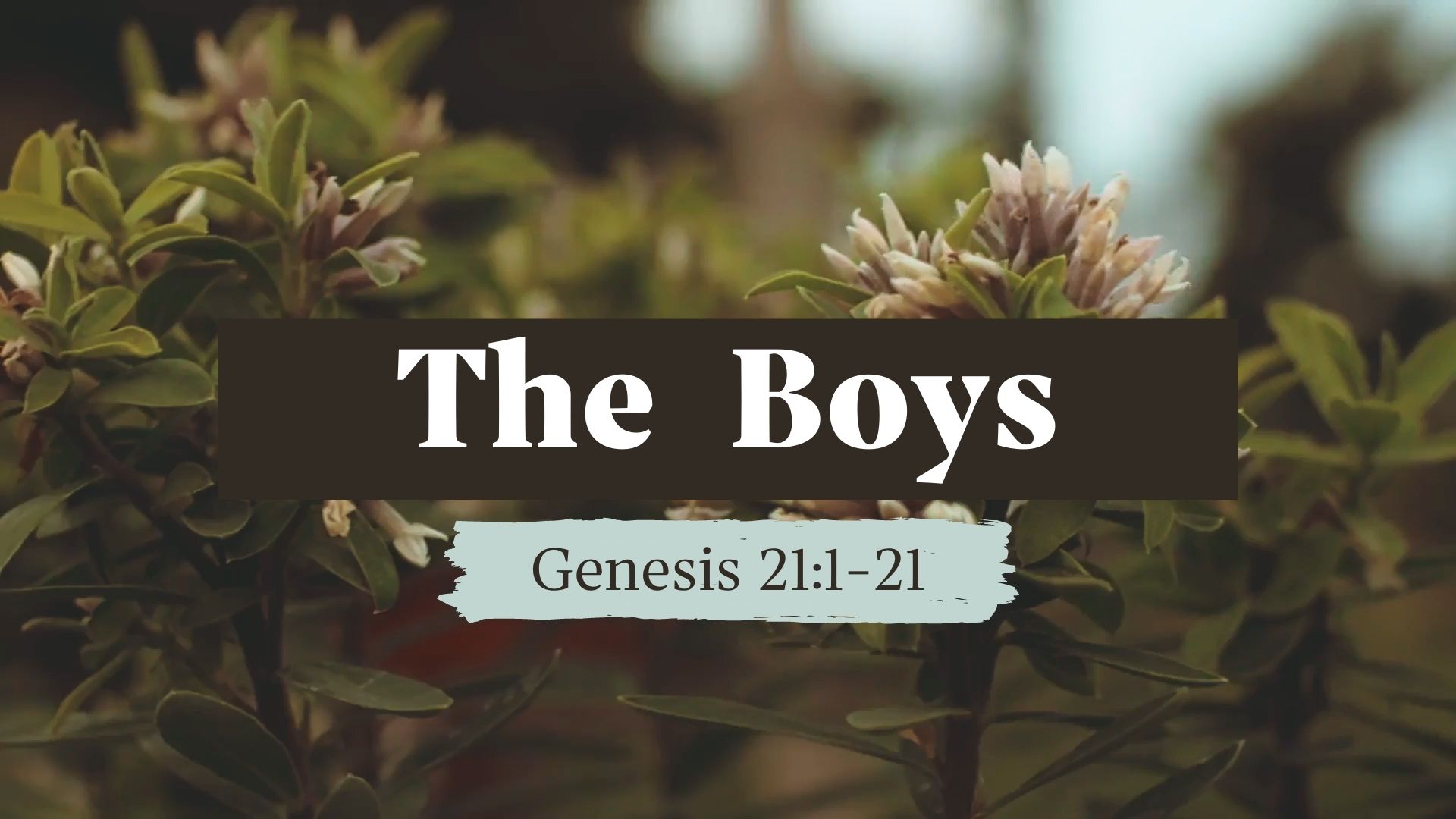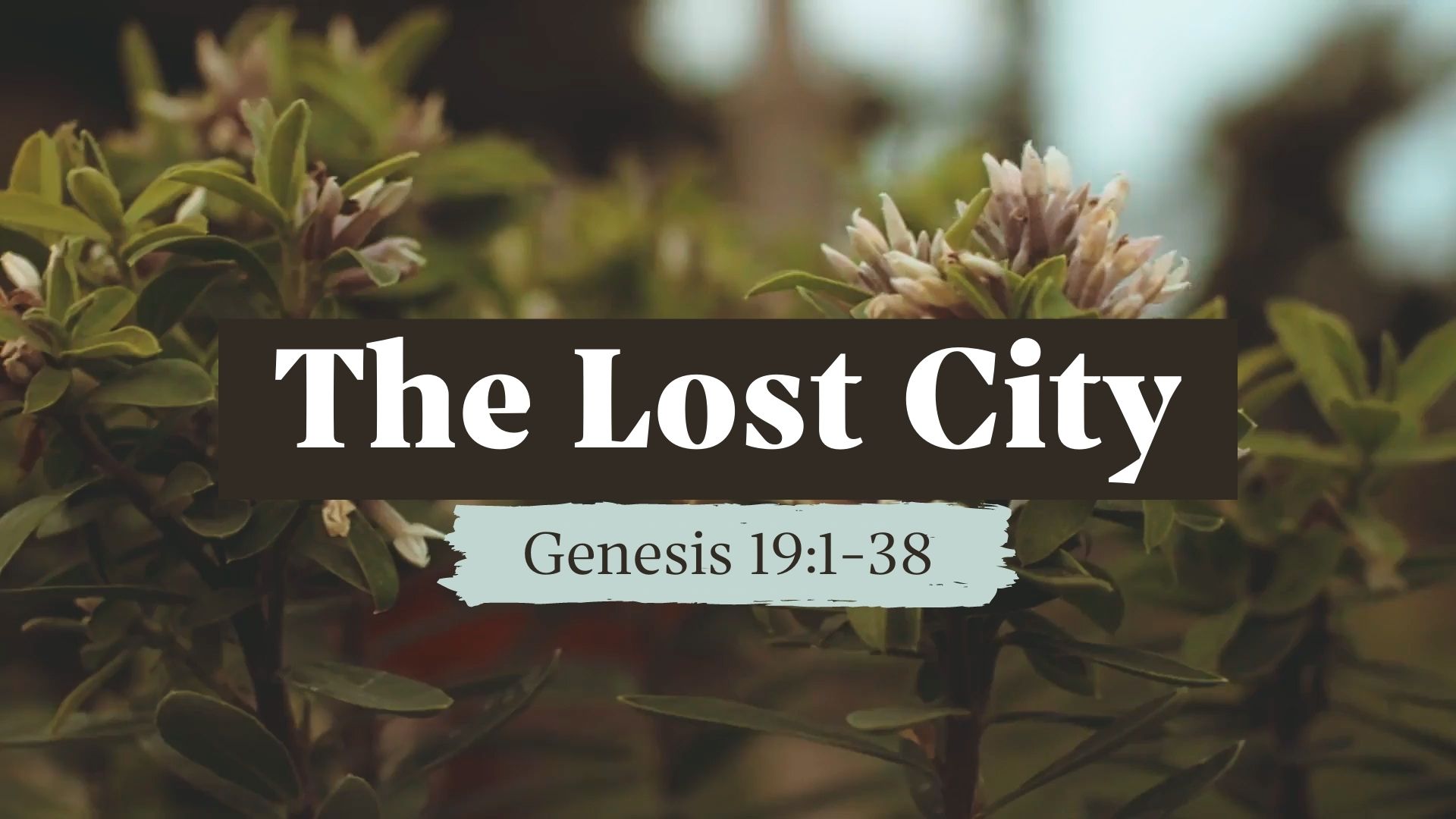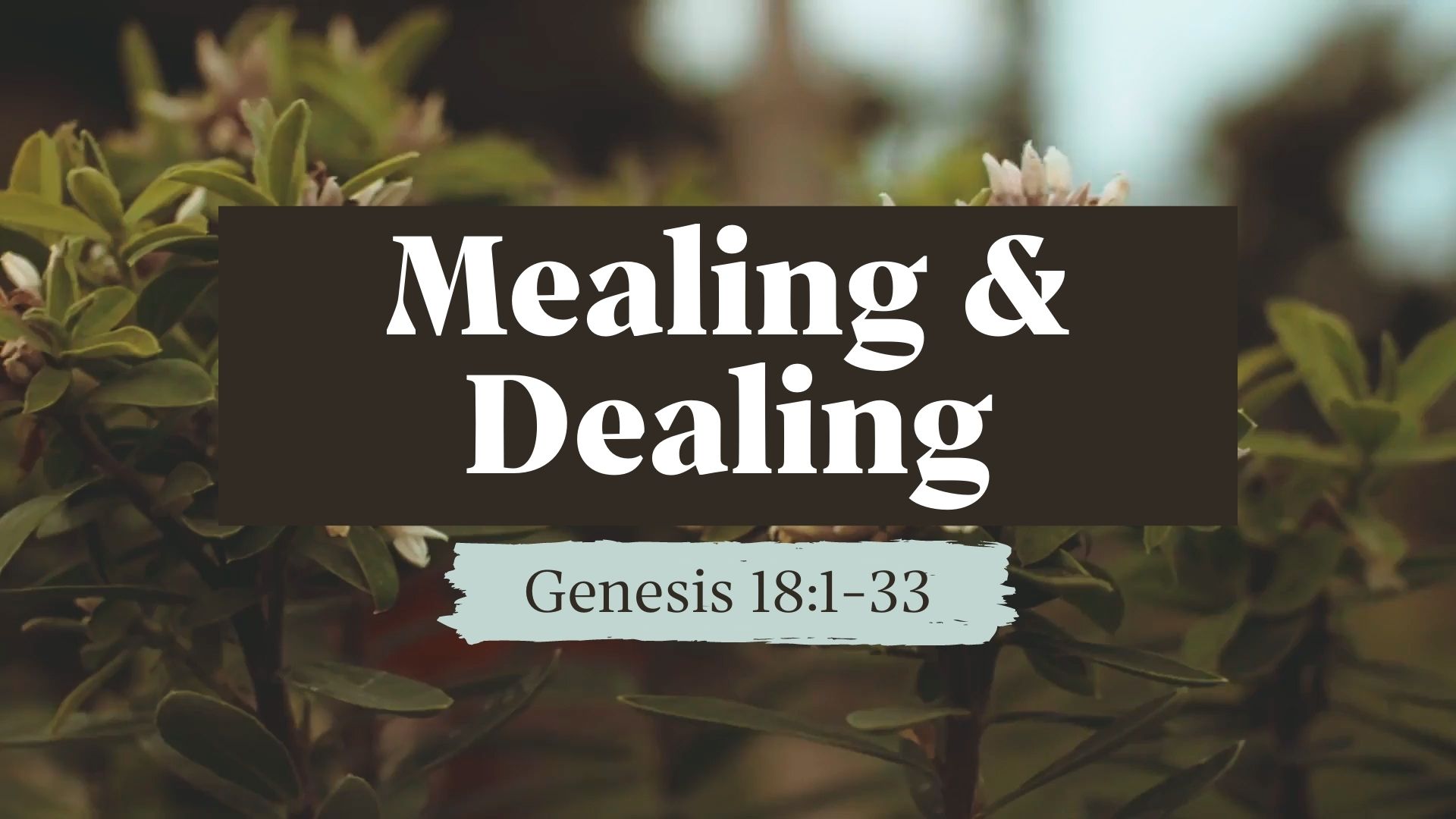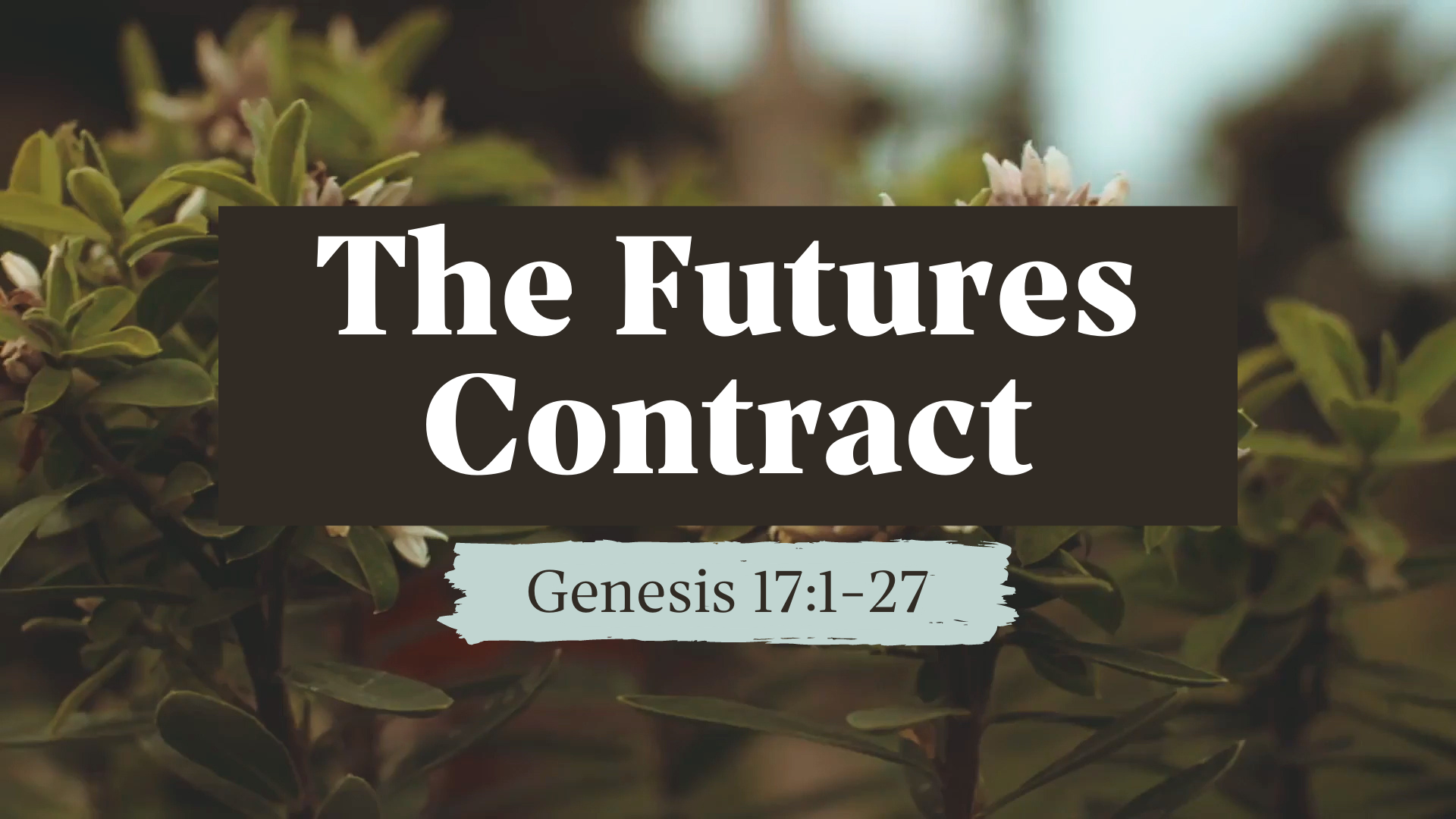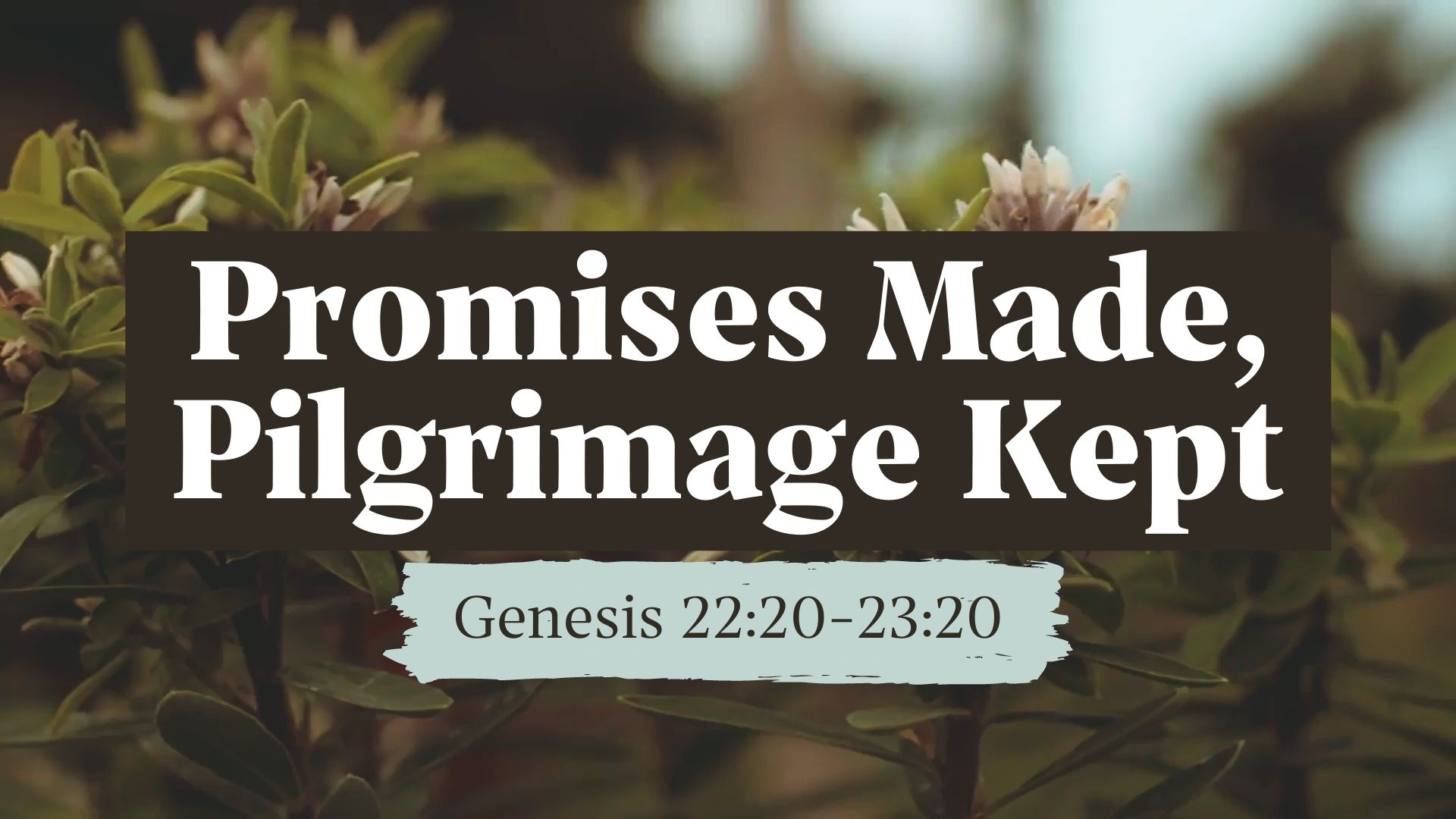
Promises Made, Pilgrimage Kept (Genesis 22:20-23:20)
We don’t believe politicians’ promises, but we vote for them anyway. It may surprise you to learn that research over the last 50 years has found that, on average, U.S. presidents have kept 67% of their promises. Presidential promise keeping has gone as high as 80% and never below 50% since 1912.[1]) Still, we’re not satisfied. We usually give our presidents just 100 days to get things done. For some reason, 100 days is always a key marker for an administration, at which point there is a flurry of news reporting on whether they made good on all those campaign speeches. Did they do what they promised they would do after we so generously gave them an entire 14 weeks to do it?
God made astounding promises to Abraham. We find ourselves not 100 days into this man’s story, but more than 100 years! We expect to see some progress made on those more-decendants-than-the-stars-in-the-sky, and owning-all-the-land-of-Canaan promises made so long ago. Instead, we see a different picture. We see Sarah dead, having only delivered one baby. We see Abraham shelling out just to have a place to bury her. Taking stock of all of this, we’re reminded Hebrews:
Hebrews 11:39 – 39 All these [believers like Abraham] were approved through their faith, but they did not receive what was promised.
Wait a minute! I thought God kept His promises? Is this all just an empty hope? When we face the hardest parts of life, what does it mean to hold on to our beliefs? Let’s see what Abraham has to teach us about the Christian faith when it seems like God has forgotten His promises.
Genesis 22:20-23 – 20 Now after these things Abraham was told, “Milcah also has borne sons to your brother Nahor: 21 Uz his firstborn, his brother Buz, Kemuel the father of Aram, 22 Chesed, Hazo, Pildash, Jidlaph, and Bethuel.” 23 And Bethuel fathered Rebekah. Milcah bore these eight to Nahor, Abraham’s brother. 24 His concubine, whose name was Reumah, also bore Tebah, Gaham, Tahash, and Maacah.
We learn that Abraham kept in touch with his Mesopotamian family. God had called him out and they left, but they still had some contact. We’re told about his nephews and niece because this is where Isaac is going to get his wife. You probably noticed one name in the group – Rebekah.
Let’s consider the real-life emotion they might have felt. The extended family had become quite large: Twelve sons and probably many daughters, though Moses only mentions one. Abraham would need to write an update of his own. What would he have to say? The great man of faith, the great friend of God, the “father of nations,” had one kid. Well, two, but we don’t talk about Bruno…
There’s a scene in Nora Ephron’s beloved movie Julie & Julia, where Julia Child receives word that her newlywed sister is pregnant. Julia had longed for a baby but was unable. And so, Julia breaks down in heart-broken tears and says, “I’m so happy.” She was, but it was a hard piece of news to receive. There was an ache inside. Abraham and Sarah were real people who felt things.
There’s something else here for us. Sharp-eyed Bible commentators have noticed that we see 12 sons born to this other family – 8 from the wife, 4 from the concubine. The same thing will happen with Jacob. 12 tribes from 12 sons. 8 born from the wives, 4 from the concubines. Ishmael, we’re told, would also produce 12 sons and 12 tribes.[2])
There is always a counterfeit alternative to the work of God. It will culminate in the final Antichrist. But along the way, there is so often this sort of mirror option where it looks like the real thing, but is a God-rejecting, man-centered alternative. John tells us to watch out for these counterfeits, these antichrists, many of which are in the world today and even work to infiltrate the church.[3])
One more thing: We find another subtle reminder about God’s plan for marriage. God doesn’t call everyone to be married, most but not all. For those who are being led to marriage, Genesis again presents the idea that God has a specific person prepared and in mind for you. Eve was made for Adam. Rebekah was the one the Lord had in mind for Isaac. If you’re single, choose to let the Lord lead you to the person He has had in mind for you from before the foundation of the earth.
Hearing that, perhaps you might think, “Well, I’m already married and I didn’t really seek the Lord, so what does that mean for me? Maybe I should get divorced and find the ‘right’ person.” No, that isn’t what the Lord says to do.
1 Corinthians 7:10-11 – To the married I give this command—not I, but the Lord—a wife is not to leave her husband. 11…and a husband is not to divorce his wife.
If you’re being called into marriage, there is some Rebekah for you fellows, some Isaac for you ladies. The Lord knows and will lead you to them. Trust Him and follow him.
Genesis 23:1-2 – Now Sarah lived 127 years; these were all the years of her life. 2 Sarah died in Kiriath-arba (that is, Hebron) in the land of Canaan, and Abraham went in to mourn for Sarah and to weep for her.
When Sarah died, Isaac was 37. Abraham was 137 and would live another 38 years. As Sarah passes on into eternity, we readers are left outside the tent while Abraham goes in to mourn her.
It gives us a moment to think about their life together – the many things they had been through. As we read through these chapters, the focus is mostly on Abraham, but Sarah was beside him. She was also faithful. She made her mistakes, but she loved the Lord and walked with Him and grew in her faith, just like God intends for each of us.
When I mentioned Isaac and Rebekah, maybe you thought, “Well, that doesn’t apply to me.” Maybe you got married before you were a believer or just didn’t consult the Lord with that decision. That happens. It happened to Abram and Sarai! They weren’t believers. They had some real marriage problems along the way. But look what God did: He turned them into Abraham and Sarah. People full of love for each other, full of fruitfulness, and grace and a long companionship. They show us what kind of beauty God can bring from ashes. They show us how God can overcome our weaknesses and mistakes and redeem our relationships.
The New Testament tells us that Abraham had some understanding of the resurrection. And he had some understanding of the future city, whose builder and maker is God. So, Abraham believed that he and his family were going to live forever in heaven. And yet, we see him mourn when his wife departed. Grief is a normal, Godly part of life, but we are not to grieve like they who have no hope. The passing of a loved one should not derail our lives because we know death is not the end. We will see our saved loved ones again and all will be made right forever. We comfort ourselves and each other with that certain hope, but, in the meantime, death remains a painful reality.
Why do Christians have to die? If death is defeated at the cross, shouldn’t we be exempt? One practical answer is because we still live in a fallen world, in decaying bodies, impacted by sin. Glorification is coming, but it is not yet. God leaves us here to endure mortality so that we can join with Him in saving other people. But, just as God transforms our lives when we are born again, He also transforms our deaths. Death no longer has any sting. It becomes a passage, rather than a pit. In some small sense, death for the Christian is like retiring, rather than being fired. It is the process by which we are delivered into eternity. Paul goes as far as saying death is now profitable to us.[4])
Sarah was no longer with Abraham, but he knew she wasn’t gone. She was alive and he would go to her one day. Meanwhile, there was a problem. He had nowhere to place her body.
Genesis 23:3-4 – 3 When Abraham got up from beside his dead wife, he spoke to the Hethites: 4 “I am an alien residing among you. Give me burial property among you so that I can bury my dead.”,
On the human level, this would’ve been a very hard day for Abraham. He has to deal with the remains of his precious wife. His God has promised that the whole land really belongs to him, and yet, he doesn’t possess even enough to dig a grave or put a bone box.
I probably would’ve thrown up my hands and said, “Lord, what gives?” But Abraham didn’t. In fact, we see the resilient strength of his faith in his request to the Hethites. Commentators point out that Abraham didn’t make any plan to bring his wife’s remains back to his homeland – Ur of the Chaldees. No, Canaan was his home and would be his resting place. Hebrew scholars also point out that when he says, “burial property,” the word is “the possession.”[5]) He still believed it belonged to him, just as God had said, it was just being occupied by these Hethites at the moment.
Abraham’s faith was focused on the future. The future city. The future life. The future fulfillment. That future focus gave him peace. He could navigate this painful situation with patience and meekness, even though he was having to pay for something that already belonged to him!
Genesis 24:5-6 – 5 The Hethites replied to Abraham, 6 “Listen to us, my lord. You are a prince of God among us. Bury your dead in our finest burial place. None of us will withhold from you his burial place for burying your dead.”
This whole scene is very formal. There’s no way for us to know whether these Hethites were good guys or not. Some think they were taking advantage of Abraham, some think they we truly being generous. Either way, what they’re saying here is, “We don’t really want to sell you any of our land (that’s what Abraham is asking for, by the way, not just a donation), but your family bones can crash in our tombs, if you want.” If these guys are more on the sleazy side, it’s possible they’re thinking, “This guy is wealthy and powerful, but he’s moving around all the time. Sometimes he’s down in Philistine country, sometimes he’s here, sometimes he’s there. Maybe we let him put a bone box or two in one of our tombs and then after awhile we can get rid of it.” Maybe they really did like him and were being deferential. Either way, they didn’t really want to part with their land.
What is clear is that the presence of God was evident in Abraham’s life. When they looked at him, they said, “God is with that family.” That’s still what God wants to do in our lives, by the way.
Genesis 24:7-9 – 7 Then Abraham rose and bowed down to the Hethites, the people of the land. 8 He said to them, “If you are willing for me to bury my dead, listen to me and ask Ephron son of Zohar on my behalf 9 to give me the cave of Machpelah that belongs to him; it is at the end of his field. Let him give it to me in your presence, for the full price, as burial property.”
We don’t barter in our culture. Jerry Seinfeld was once asked why there’s no haggling in our country. He said, “I guess we like to think we’ve progressed beyond a knife fight for a citrus drink.”[6]) But in Abraham’s time, haggling was the name of the game. He knew the spot, he had scouted this cave. Linguists let us know it was a primo double-cave,[7]) which, as far as caves go, is cool. Now he just had to do this dance with the owner. But we notice this: Even when it comes to a burial place, Abraham wants to remain separate. He lives this strange life of being in the world but not of the world. He’s a blessing to those around him but he keeps himself devoted to God. In this transaction, Abraham is gracious. He’s patient. He’s not demanding. Even though he’s fabulously wealthy and has a lot of influence, he behaves meekly and courteously.
W.H. Griffith Thomas writes, “Religion is not intended to decrease but to increase natural politeness, gentlemanliness, and courtesy. Indeed, courtesy is one of the truest marks of a genuine believer.”[8])
Genesis 24:10-11 – 10 Ephron was sitting among the Hethites. So in the hearing of all the Hethites who came to the gate of his city, Ephron the Hethite answered Abraham: 11 “No, my lord. Listen to me. I give you the field, and I give you the cave that is in it. I give it to you in the sight of my people. Bury your dead.”
They’re talking a lot about giving, but this is a business transaction. The term used is also translated, “I’ll grant you the land,” or, “I’ll sell you the land.” And Ephron knows he’s got a decent payday coming because Abraham is in a tight spot – he needs a burial cave – and he’s already said he’ll pay “full price.” And, notice what Ephron has done: He includes the field with the cave. Abraham hadn’t really wanted the field, but Ephron wants to parcel them together.
Genesis 24:12-16 – 12 Abraham bowed down to the people of the land 13 and said to Ephron in the hearing of the people of the land, “Listen to me, if you please. Let me pay the price of the field. Accept it from me, and let me bury my dead there.” 14 Ephron answered Abraham and said to him, 15 “My lord, listen to me. Land worth four hundred shekels of silver—what is that between you and me? Bury your dead.” 16 Abraham agreed with Ephron, and Abraham weighed out to Ephron the silver that he had agreed to in the hearing of the Hethites: four hundred standard shekels of silver.
How much money was this? Some think it was an insane asking price. The truth is, we just don’t know. Estimates of how much this is range from a few hundred dollars to over a hundred thousand dollars. In the time of Moses, this would be equivalent to eight healthy, adult, male slaves.[9])
Rather than debate the bill, we should examine the behavior of Abraham. In the midst of his heart-ache, he’s strengthened by God to be patient, to endure the frustrations of living in this unfair world. He’s humble and not handicapped by an obsession with money. He lives on a different level.
Genesis 23:17-20 – 17 So Ephron’s field at Machpelah near Mamre—the field with its cave and all the trees anywhere within the boundaries of the field—became 18 Abraham’s possession in the sight of all the Hethites who came to the gate of his city. 19 After this, Abraham buried his wife Sarah in the cave of the field at Machpelah near Mamre (that is, Hebron) in the land of Canaan. 20 The field with its cave passed from the Hethites to Abraham as burial property.
Once again we see the presence of trees in Abraham’s story. We’ve seen him living by oaks and planting a tamarisk. It is a symbol reminding us of the long-term, abundant work God intended to do in the lives of His people in that specific land. It’s a picture of how God establishes and makes us strong and gives us strength to withstand winds and storms. It demonstrates how, by His grace, we grow and expand are are able to branch out into new areas of fruitfulness – how God develops us to be useful and beautiful and firm, giving help and shade to those nearby. How God faithfully discharges His responsibility to give us light and water that we might become all He wants us to be. That even in death our lives are a declaration of life and our eternal hope. That we are leaving this life but one day we’ll be back to receive everything that was promised in full. And that His promise is worth the trouble, worth the price, worth the patient endurance of our mortal lives.
The suffering of this present time is not worth comparing with the glory that is going to be revealed to us. Like the creation all around, we eagerly wait with anticipation for God’s sons and daughters to be revealed in immortal perfection, redeemed into glorious freedom, receiving all God has promised, with not one good thing missing from the inheritance He’s decided to share with us.[10])
After all God had promised Abraham, it looked like he only had one kid and one field, good only for burying corpses. How could Abraham square this with his actual experience? It’s not that he didn’t care. Remember, when God had earlier made those promises, Abraham had said, “Ok, how can I know that I will possess it?” God’s assurance to him at the time was, “I’m God and I promise.” And from there Abraham’s faith grew, not because he got deeds to the land, but because he knew more of God as he walked with Him. The closer he got with the Lord, the more Abraham was able to understand the extent of what God was promising. And he came to the realization that he didn’t want to be the Hethites now, he wanted to be God’s child in eternity. And so he was content to wait – to live as a pilgrim in a tent – because he knew God’s ultimate fulfillment was on the other side of death. Not only on the other side. After all, the Jews did receive the land, it’s still theirs, God will have a physical Kingdom with a throne in Jerusalem for 1,000 years. And, already, God has made good on the promise to give Abraham countless descendants. What was a mom, a dad and one kid is today 6.9 million Jews living in the land, with another 6 million in the USA,[11]) and a countless number sustained for the last 4,000 years. But Abraham knew the best was yet to come.
In Hebrews we’re told Abraham did not receive what was promised in his mortal life. But here’s what what we find when we read both verse 39 and 40:
Hebrews 11:39-40 – 39 All these were approved through their faith, but they did not receive what was promised, 40 since God had provided something better for us, so that they would not be made perfect without us.
Abraham knew the promise was perfect and that it wasn’t just for a dusty field or two in 2,000 B.C. It was something greater, something eternal, something this life cannot match. When the days were hard, when he dealt with death and seeing unbelievers around him seemingly prosper, Abraham didn’t despair. We see him more devoted than ever to the truth God had told him: That the promise is coming, that what we really want is not found in this world, but the next, and that we can secure our lives on that hope which will not disappoint us, because God has proved His power, He has proved His love for us, death has been beaten, we will be delivered into glory. We’ve received these promises, and they will be kept in full. Not 50%, not 67%. 100%. All the way, beyond what we can ask or imagine, our God will not fail.
| ↑1 | (https://fivethirtyeight.com/features/trust-us-politicians-keep-most-of-their-promises/ |
|---|---|
| ↑2 | (Genesis 25:12-16 |
| ↑3 | (1 John 2:18-23, 4:1-3 |
| ↑4 | (Philippians 1:21 |
| ↑5 | (Bruce Waltke Genesis: A Commentary |
| ↑6 | (https://www.seinfeldscripts.com/TheChickenRoaster.htm |
| ↑7 | (Francis A. Betten A Real Estate Deal of Four Thousand Years Ago |
| ↑8 | (W. H. Griffith Thomas Genesis: A Devotional Commentary |
| ↑9 | (Leviticus 27:3 |
| ↑10 | (Romans 8:18-20 |
| ↑11 | (https://worldpopulationreview.com/country-rankings/jewish-population-by-country |


